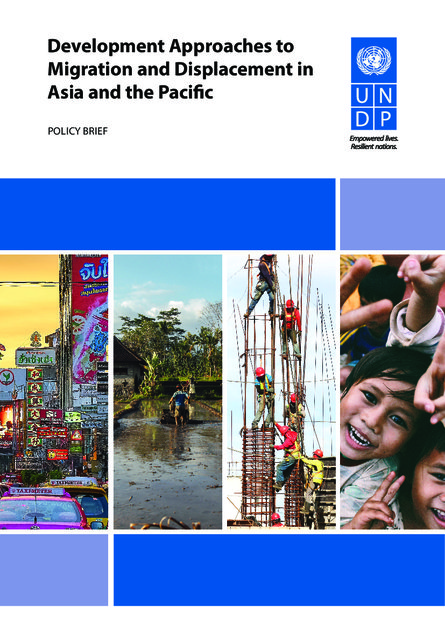
UNDP has been working on migration and displacement for decades. While the issues have been of higher profile in other regions, Asia and the Pacific sees some of the most significant movements globally. This Policy Brief for Asia and the Pacific outlines our value-added and approach to addressing both the positive and negative impacts of population movements through a development framework.
Migration and displacement are complex phenomena, intersecting with governance and human rights, from international to local levels; livelihoods and inclusive growth, often as drivers of migration; rule of law and access to justice, with migrants frequently excluded; urbanization, which has increased internal and international migration; climate, disasters, conflict and violent extremism, having resulted in displacement; and sustaining peace.
They are about inequality and discrimination – people move to better opportunities, which can paradoxically exacerbate inequalities when not managed; about youth – the demographic most likely to migrate for work; and about gender – migration and employment opportunities, as well as vulnerabilities and resilience to displacement events, are often differentiated by gender.
In applying a holistic development approach to migration and displacement in the Asia-Pacific region, we work towards:
- ensuring migration is a choice rather than a necessity, supporting alternatives where needed, and developing early warning systems and mitigation to displacement events;
- empowering migrants and host communities, facilitating integration and social cohesion;
- strengthening channels for migrants and diaspora communities within and from the region to contribute to sustainable development in their home countries;
- building the resilience of migrants and displaced persons to various vulnerabilities, including trafficking in persons; and
- supporting the re/integration of migrants and displaced persons, helping to develop a range of services tailored to their needs.
